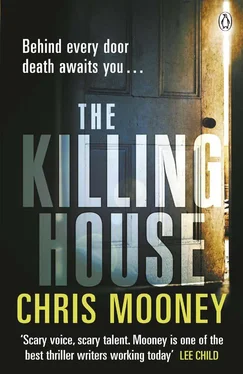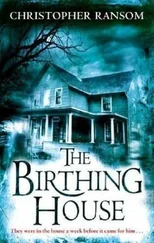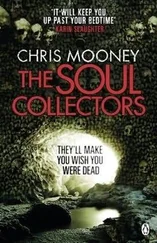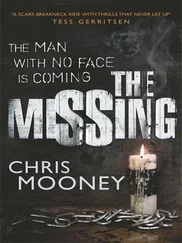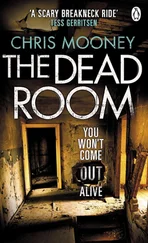Chris Mooney - The Killing House
Здесь есть возможность читать онлайн «Chris Mooney - The Killing House» весь текст электронной книги совершенно бесплатно (целиком полную версию без сокращений). В некоторых случаях можно слушать аудио, скачать через торрент в формате fb2 и присутствует краткое содержание. Жанр: Триллер, на английском языке. Описание произведения, (предисловие) а так же отзывы посетителей доступны на портале библиотеки ЛибКат.
- Название:The Killing House
- Автор:
- Жанр:
- Год:неизвестен
- ISBN:нет данных
- Рейтинг книги:5 / 5. Голосов: 1
-
Избранное:Добавить в избранное
- Отзывы:
-
Ваша оценка:
- 100
- 1
- 2
- 3
- 4
- 5
The Killing House: краткое содержание, описание и аннотация
Предлагаем к чтению аннотацию, описание, краткое содержание или предисловие (зависит от того, что написал сам автор книги «The Killing House»). Если вы не нашли необходимую информацию о книге — напишите в комментариях, мы постараемся отыскать её.
The Killing House — читать онлайн бесплатно полную книгу (весь текст) целиком
Ниже представлен текст книги, разбитый по страницам. Система сохранения места последней прочитанной страницы, позволяет с удобством читать онлайн бесплатно книгу «The Killing House», без необходимости каждый раз заново искать на чём Вы остановились. Поставьте закладку, и сможете в любой момент перейти на страницу, на которой закончили чтение.
Интервал:
Закладка:
‘You can have it,’ she said. ‘I just buy it for the Books section.’
The man thanked her and wished them all a good day. T. J. breathed a sigh of relief when the dude walked away.
Malcolm Fletcher didn’t have to hunt for the story. The New York Times had printed his headshot above the fold so the news of his escape wouldn’t be missed. His picture covered nearly a quarter of the paper. The title read ‘American Nightmare’.
The story was long on speculation and short of facts; it reeked of bureaucratic rote. The Bureau’s PR executives were working overtime to spin the botched raid.
The last paragraph encapsulated the same lies Alexander Borgia had spouted on that morning’s TV programme: ‘Malcolm Fletcher defies characterization, at least in any textbook sense. On one hand, he’s a very clever and highly intelligent sociopath who lacks any sense of moral responsibility or social conscience. He’s also an extremely cunning and manipulative psychopath. He’s unable to feel normal human emotions such as love and empathy.’
Fletcher made his way up Seventh Avenue, heading for Central Park. On his way into the city, he had changed into clothing more suited to walking around New York during daylight. The old clothing went inside a department-store bag, which he had tossed into a dumpster. The tactical belt went inside the new backpack. After ditching the white BMW by the side of a busy street, he had wandered for the good part of an hour before finding a suitable vehicle to take him to New York. He had ditched that one inside a parking lot a few blocks away.
Fletcher checked his watch. He had plenty of time.
He found a department store and quickly purchased the clothing he needed. He declined the shopping bag; instead, he neatly folded the clothing inside his backpack.
Inside a drugstore he purchased two disposable, pre-charged cell phones with sixty minutes of talk time, a mail folder, a marker pen and a copy of Newsweek. He found a diner, sat in a quiet corner and activated both phones. He wrote his number on M’s phone and sealed it inside the mailer.
After breakfast, Fletcher continued up Seventh Avenue. He turned right on to Central Park South and entered the busy lobby of the New York Athletic Club. The older gentleman standing behind the reception smiled pleasantly, eager to help.
‘One of your members, Emma White, asked me to deliver this to the front desk,’ Fletcher said, and placed the sealed mailer on the countertop. ‘She asked that you place it inside her mail box.’
‘Certainly, sir.’
Fletcher left and stood by the lobby windows. Five minutes later, he looked across the street and saw M waiting in the prearranged spot.
64
M sat on the bleached-stone wall surrounding Central Park, her head tucked down as she examined her cell phone. She wore a bulky winter parka with nylon leggings and trainers. A pair of oval sunglasses covered her eyes. The strap of a gym bag was draped across her shoulder, the signal that she hadn’t been followed.
Still, Fletcher needed to be sure she was clean. He placed the copy of Newsweek flat on top of the folded newspaper and held them in his right hand as he exited the building. He crossed the street, dodging his way around a parked horse and carriage offering a scenic tour of the city, and walked past her. He dropped the newspaper and magazine into a kerbside bin and strode away. He didn’t turn to watch her.
He moved to a grouping of pull-cart pavement vendors, their green-and-white carts and umbrellas advertising the same slogan: KEEP OUR PARKS CLEAN. He wandered a few feet away to another group of vendors selling cheaply framed pictures of Manhattan. He perused the selections, tracking time in his head.
When fifteen minutes had passed, Fletcher sat on the wall and pretended to check messages on his smartphone. Behind his sunglasses he watched the entrance to the New York Athletic Club.
At the twenty-minute mark M came through the front doors, dressed in new attire: black yoga pants and a different pair of trainers. A bulky grey hoodie covered her white hair. Another pair of sunglasses concealed her eyes. She moved to the corner to hail a cab.
Fletcher watched the area closely.
It took her five minutes to get a cab. It pulled away and he kept watching.
He waited another ten minutes.
She was clean.
Fletcher stood and then went to hail a cab of his own. He had to wait nearly twenty minutes.
Climbing into the back, he leaned forward and gave the driver an address in the Howard Beach area in Queens. On the passenger’s seat he saw stapled pages showing his Most Wanted picture and the three-million-dollar reward for information leading to his capture.
Traffic was mercifully slow; he wouldn’t reach his destination for quite some time. He leaned sideways across the backseat, closed his eyes and dozed. He came awake sometime later to the trill of his disposable cell.
Fletcher glanced at his watch as he reached into his pocket. A little over an hour had passed.
‘I’m clean,’ M said. ‘I’m on the Long Island Expressway, driving a black Cadillac Escalade with tinted windows. I borrowed it from a friend. It has no connection to Karim’s company. Now tell me where I’m heading.’
Fletcher gave her the address. ‘Call me when you arrive,’ he said and hung up.
Forty minutes later, Fletcher arrived at his destination. He paid the driver in cash, along with a generous tip, and exited the cab.
The exterior of the Bayside Motel was still the same drab stucco he’d first seen decades ago, but the interior had been renovated. It had a dimly lit lobby and the owner had tried to brighten it up with silk flowers placed inside wicker baskets.
The motel still catered to budget-conscious clientele, the majority of whom appeared to be foreigners. Even better, a young staff manned the reception desk. In his experience, this wired generation, plugged into their phones, iPods and computers, barely looked beyond their constant texts, emails and phone calls to examine the world around them. They rarely read the newspapers or watched the news — a fact evidenced by the dwindling subscriptions and news ratings that continued their precipitous slide month after month, year after year.
The young woman behind the front desk had long, clean brown hair that carried a lingering trace of coconut. Fletcher spoke in broken English, his accent clearly suggesting he had travelled there from France. He explained he had been mugged during the early-morning hours and had just returned from the hospital. He didn’t have a reservation but enquired about a room, possibly one on the ground floor so he wouldn’t have to climb any stairs.
The woman, sympathetic to his plight, checked for vacancies. Fletcher checked the lobby for security cameras. He didn’t find any, but behind the front desk he found a colour picture of himself resting on a computer-printer tray.
The woman had a ground-floor room available. She insisted on a licence and credit card. He gave her the passport for Richard Munchel and insisted on paying in cash. She agreed, and gave him a plastic keycard. Fletcher thanked her in his mangled English and courteously declined the porter’s offer to assist him to his room.
On the bed he placed the clothing he’d purchased in Manhattan. He took a shower and redressed in the same clothing but exchanged his fedora for a woolly hat. He tucked his sunglasses inside his jacket pocket and put on a pair of glasses with tinted lenses dark enough to hide his eyes.
From his backpack he removed a small digital recorder and placed it underneath the bed. He took the backpack with him and left the hotel.
Cross Bay Boulevard was heavy with fast-moving traffic on both sides. He waited for a break, crossed and then made his way to a diner. He sat at the counter and drank coffee as he read the New York Post. His picture had also made their front page, printed under the banner title ‘Disgraceful!’ The Post had decided to focus on the botched raid, citing the FBI’s inability to catch fugitives, Malcolm Fletcher being the latest example.
Читать дальшеИнтервал:
Закладка:
Похожие книги на «The Killing House»
Представляем Вашему вниманию похожие книги на «The Killing House» списком для выбора. Мы отобрали схожую по названию и смыслу литературу в надежде предоставить читателям больше вариантов отыскать новые, интересные, ещё непрочитанные произведения.
Обсуждение, отзывы о книге «The Killing House» и просто собственные мнения читателей. Оставьте ваши комментарии, напишите, что Вы думаете о произведении, его смысле или главных героях. Укажите что конкретно понравилось, а что нет, и почему Вы так считаете.
